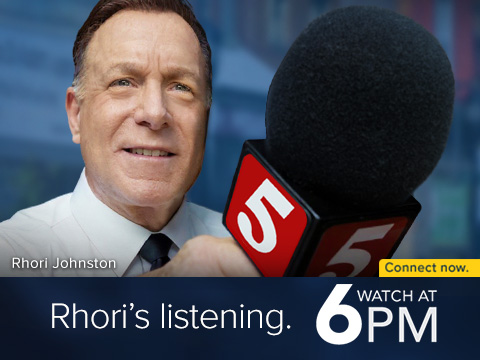NASHVILLE, Tenn. (WTVF) — The signing of President Donald Trump’s multi-trillion-dollar stimulus bill is clearing the way for student loan payments to be put on hold through September.
Applying only to federal loans, experts say this six-month window can help to save money or even make a dent in what you owe.
It may be one of the least talked about components of the stimulus bill, but it could be among the most impactful, as more than 44 million student loan borrowers carry a total debt of $1.5 trillion.
To put that into perspective, that’s about $34,000 in debt for each borrower.
“It would be a significant and immediate relief for students,” said Tiffany Summers, Financial Aid Director for Lipscomb University.
Tiffany Summers is the director of financial aid over at Lipscomb University and says while this may offer some breathing room, you could also use it as a time to pay off your loan faster.
“All of the payment is going toward your principal and not toward any interest, so it can help pay down your loan a little sooner now because interest is not accruing,” said Summers.
All it takes is a review of your student loan plan, which you can do online or over the phone. You can then ask for a forbearance which gives you the flexibility to also lower your monthly payments through an income-driven plan. Before this bill, a forbearance would have meant putting a hold on your loans while the interest continued to add up.
If you’re on a loan rehabilitation program, you won’t lose any of your progress and don’t expect any calls from debt collectors either.
In addition, credit scores and reports won’t be impacted and wage garnishments as well as tax refund seizers will be put on hold.
These changes apply to federal student loans, which means those with private loans must ask their own providers what they can do for them.
As most companies are willing to work with borrowers under these tough circumstances, Summers says it’s worth the call.
“It will take some time to update their systems and get up to all of their servicers. I say have a little patience with them, but in all cases definitely check with your loan servicer,” said Summers.
Students like Darrin Hall say a break from payments, even for six months could make all the difference.
“When we’re trying to pay back those student loans, we’re just trying to get back to zero,” said Hall.
After graduation, Hall says he took full advantage of the grace period before paying for student loans and saved enough money to buy a home.
“From there it gave me a grace period to get my life together and get my life under control,” said Hall.
We spoke with Mike Garcia who says he’s just completed his student loans and knows the stress can be overwhelming.
“Some of my buddies fresh out of college took jobs they didn’t want or thought they could do better. But they said no, I’ve got two months left before these starts kicking in. I got to start doing something,” said Garcia.
Summers says she and other financial aid officials across the country met Tuesday to discuss how to address the new changes. She says they’re in constant contact with the U.S. Department of Education to stay up-to-date on more student loan developments.
If you’re not sure if your loans apply for the forbearance, you can visit studentaid.gov for more information.
MORE TENNESSEE COVID-19 COVERAGE
- Mask mandate, capacity restrictions lifted in Nashville; what you need to know
- Tennessee, Metro to offer COVID-19 vaccine to children 12-15 years old
- Nashville's COVID-19 testing centers to adjust operating hours
- Walmart pharmacies in Tennessee now offering COVID-19 vaccines
- Donate to the COVID-19 Middle Tennessee Emergency Response Fund
See all our coronavirus coverage here
COUNTY-BY-COUNTY CASES IN TENNESSEE
What is COVID-19 (a.k.a. the new coronavirus?)
According to the World Health Organization, coronaviruses (CoV) are a large family of viruses that cause illness ranging from the common cold to more severe diseases. Examples include the Middle East Respiratory Syndrome (MERS-CoV) and Severe Acute Respiratory Syndrome (SARS-CoV). A novel coronavirus (nCoV) is a new strain that has not been previously identified in humans. COVID-19 stands for "Coronavirus disease 2019," which is when this strain of the coronavirus was discovered.
What are the symptoms?
The CDC says patients confirmed to have the 2019-nCoV reportedly had mild to severe respiratory illness with:
- Cough
- Shortness of breath or difficulty breathing
Or at least two of the following symptoms:
- Fever
- Chills
- Repeated shaking with chills
- Muscle pain
- Headache
- Sore throat
- New loss of taste or smell
At this time, the CDC believes symptoms could appear as soon as two days after exposure, or as long as 14 days.
Prevention
The CDC is recommending "common sense" measures such as:
- Wash your hands often with soap and water for at least 20 seconds. If soap and water are not available, use an alcohol-based hand sanitizer.
- Avoid touching your eyes, nose, and mouth with unwashed hands.
- Avoid close contact with people who are sick.
- Stay home when you are sick.
- Cover your mouth and nose with a cloth face cover when around others.
- Cover your cough or sneeze with a tissue, then throw the tissue in the trash.
- Clean and disinfect frequently touched objects and surfaces.





